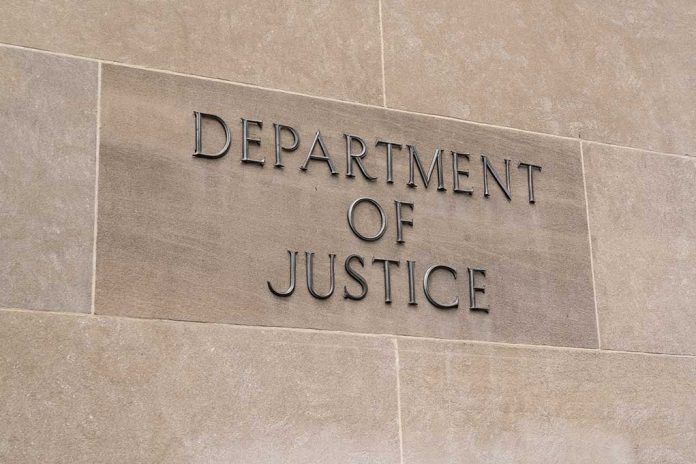🔴 Website 👉 https://u-s-news.com/
Telegram 👉 https://t.me/usnewscom_channel
Attorney General Pam Bondi has revoked Biden-era protections for journalists, once again allowing the Department of Justice to compel media outlets to surrender records and testimony in leak investigations.
Key Takeaways
- AG Pam Bondi has rescinded Merrick Garland’s 2021 policy that heavily restricted the DOJ’s ability to obtain information from journalists during leak investigations
- Bondi cited national security concerns and illegal leaking of classified information as justification for the policy change
- The new approach still maintains that targeting journalists should be a “last resort” in investigations
- The Office of Legal Policy is developing new procedures to balance national security needs with press freedom
- The policy shift follows recent criminal referrals from DNI Tulsi Gabbard regarding intelligence professionals leaking classified information
Combating Unauthorized Information Leaks
In a decisive shift from the previous administration’s approach, Attorney General Pam Bondi has announced the rescinding of policies that limited the Department of Justice’s ability to seek records and compel testimony from journalists during leak investigations. The policy change reflects the Trump administration’s tougher stance on unauthorized disclosures of sensitive government information. Bondi’s memo specifically addresses what she describes as the exploitation of previous protections by federal employees who leak classified or sensitive information to media outlets.
“This conduct is illegal and wrong, and it must stop,” stated Attorney General Pam Bondi. Her declaration makes clear that the administration views these leaks as significant threats to national security rather than simply matters of government transparency. The policy change aligns with President Trump’s longstanding criticism of unauthorized leaks from within government agencies that plagued his first term in office.
The Justice Department will again allow federal investigators to pursue communications from media outlets in the course of government leak investigations, rescinding a Biden-era policy, according to a memo from Attorney General Pam Bondi obtained by CNN. https://t.co/ApeFcU6Dez
— News 3 Now / Channel 3000 (@WISCTV_News3) April 26, 2025
Balancing Security Concerns with Press Freedom
While reversing the Garland-era protections, Bondi has maintained that compelling journalists to reveal sources or provide records should remain a measure of last resort. This approach attempts to balance the administration’s security priorities with constitutional considerations regarding freedom of the press. The Attorney General directed the DOJ’s Office of Legal Policy to develop new procedures and language that will determine when and how the department can pursue information from news organizations in leak investigations.
“We’ll wait to see what the policy looks like, but we know reporters will still do their jobs, and there is no shortage of legal support to back them up,” said Bruce D. Brown, Executive Director of the Reporters Committee for the Freedom of Press. This response from press freedom advocates suggests a wariness about potential implications while acknowledging the resilience of journalism in the face of governmental pressure.
The timing of Bondi’s announcement is significant, coming shortly after Director of National Intelligence Tulsi Gabbard made criminal referrals for intelligence professionals accused of leaking classified information. This coordination between intelligence agencies and the Justice Department signals a comprehensive approach to addressing what the administration views as a serious security threat.
A Return to Pre-Biden Era Policies
The 2021 policy implemented by former Attorney General Merrick Garland had created substantial barriers against prosecutors seeking journalists’ records or testimony. These protections were put in place following controversies during previous administrations where journalists were targeted during leak investigations. By rescinding these safeguards, Bondi’s DOJ is effectively returning to policies more reminiscent of those in place during previous Republican administrations.
Conservative supporters of the policy change argue that national security must take precedence over accommodations for the press when classified information is at stake. The revised approach reflects a core belief within the Trump administration that government employees who leak sensitive information to journalists should not be shielded from investigative scrutiny by DOJ policies that make it difficult to identify sources of leaks. As the Office of Legal Policy works to develop new guidelines, the tension between security imperatives and press freedom principles will remain at the forefront of this ongoing policy debate.

